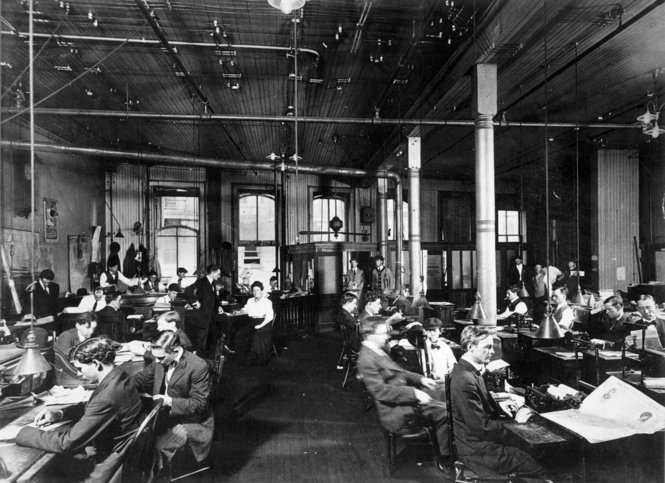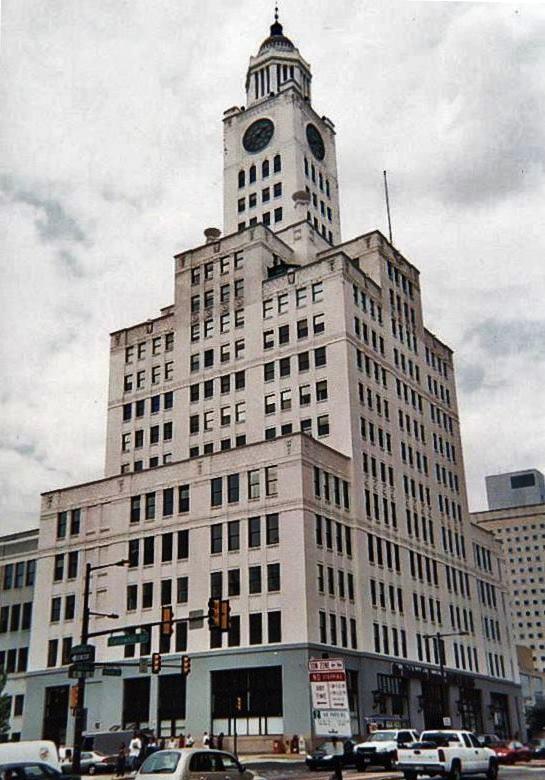|
José María Orantes
José María Orantes (born in Fraijanes—died in Guatemala City) was a Guatemalan military man, appointed acting president of the Republic of Guatemala from 23 June 1882 to January 5, 1883. Biography He was appointed by the Guatemalan National Assembly as a substitute for President Justo Rufino Barrios during his absence from the country. Justo Rufino Barrios had to leave for New York with the purpose of negotiating a boundary dispute with Mexico, 12 August 1882. A second part of his journey was to gain approval for a proposed confederation of the Central American states. Orantes returned the power to General Justo Rufino Barrios on his return the 6 January 1883. See also * Justo Rufino Barrios Justo Rufino Barrios Auyón (19 July 1835 – 2 April 1885) was a Guatemalan politician and military general who served as President of Guatemala from 1873 to his death in 1885. He was known for his liberal reforms and his attempts to reuni ... Notes and references Referenc ... [...More Info...] [...Related Items...] OR: [Wikipedia] [Google] [Baidu] |
Newspapers
A newspaper is a periodical publication containing written information about current events and is often typed in black ink with a white or gray background. Newspapers can cover a wide variety of fields such as politics, business, sports and art, and often include materials such as opinion columns, weather forecasts, reviews of local services, obituaries, birth notices, crosswords, editorial cartoons, comic strips, and advice columns. Most newspapers are businesses, and they pay their expenses with a mixture of subscription revenue, newsstand sales, and advertising revenue. The journalism organizations that publish newspapers are themselves often metonymically called newspapers. Newspapers have traditionally been published in print (usually on cheap, low-grade paper called newsprint). However, today most newspapers are also published on websites as online newspapers, and some have even abandoned their print versions entirely. Newspapers developed in the 17th ... [...More Info...] [...Related Items...] OR: [Wikipedia] [Google] [Baidu] |
19th-century Guatemalan People
The 19th (nineteenth) century began on 1 January 1801 ( MDCCCI), and ended on 31 December 1900 ( MCM). The 19th century was the ninth century of the 2nd millennium. The 19th century was characterized by vast social upheaval. Slavery was abolished in much of Europe and the Americas. The First Industrial Revolution, though it began in the late 18th century, expanding beyond its British homeland for the first time during this century, particularly remaking the economies and societies of the Low Countries, the Rhineland, Northern Italy, and the Northeastern United States. A few decades later, the Second Industrial Revolution led to ever more massive urbanization and much higher levels of productivity, profit, and prosperity, a pattern that continued into the 20th century. The Islamic gunpowder empires fell into decline and European imperialism brought much of South Asia, Southeast Asia, and almost all of Africa under colonial rule. It was also marked by the collapse of the large S ... [...More Info...] [...Related Items...] OR: [Wikipedia] [Google] [Baidu] |
People From Guatemala Department
A person ( : people) is a being that has certain capacities or attributes such as reason, morality, consciousness or self-consciousness, and being a part of a culturally established form of social relations such as kinship, ownership of property, or legal responsibility. The defining features of personhood and, consequently, what makes a person count as a person, differ widely among cultures and contexts. In addition to the question of personhood, of what makes a being count as a person to begin with, there are further questions about personal identity and self: both about what makes any particular person that particular person instead of another, and about what makes a person at one time the same person as they were or will be at another time despite any intervening changes. The plural form "people" is often used to refer to an entire nation or ethnic group (as in "a people"), and this was the original meaning of the word; it subsequently acquired its use as a plural form of per ... [...More Info...] [...Related Items...] OR: [Wikipedia] [Google] [Baidu] |
Liberal Party (Guatemala) Politicians
The Liberal Party is any of many political parties around the world. The meaning of ''liberal'' varies around the world, ranging from liberal conservatism on the right to social liberalism on the left. __TOC__ Active liberal parties This is a list of existing and active Liberal Parties worldwide with a name similar to "Liberal party". Defunct liberal parties See also * *Liberalism by country, for a list of liberal parties, such as: **Democratic Liberal Party (other) **Liberal Democratic Party (other) **Liberal People's Party (other) **Liberal Reform Party (other) **National Liberal Party (other) **New Liberal Party (other) **Progressive Liberal Party (other) **Radical Liberal Party (other) **Social Liberal Party (other) **Free Democratic Party (other) **Radical Party (other) **Freedom Party (other), Freedom Party *Partido Liberal (other) *Liberal government, ... [...More Info...] [...Related Items...] OR: [Wikipedia] [Google] [Baidu] |
Guatemalan Generals
Guatemalan may refer to: * Something of, from, or related to the country of Guatemala * A person from Guatemala, or of Guatemalan descent. For information about the Guatemalan people, see Demographics of Guatemala and Culture of Guatemala. For specific persons, see List of Guatemalans. * Note that there is no language called "Guatemalan". See Languages of Guatemala. * Guatemalan cuisine Most traditional foods in Guatemalan cuisine are based on Maya cuisine, with Spanish influence, and prominently feature corn, chilies and beans as key ingredients. Guatemala is famously home to the Hass avocado. There are also foods that are c ... {{disambig Language and nationality disambiguation pages ... [...More Info...] [...Related Items...] OR: [Wikipedia] [Google] [Baidu] |
Vice Presidents Of Guatemala
A vice is a practice, behaviour, or habit generally considered immoral, sinful, criminal, rude, taboo, depraved, degrading, deviant or perverted in the associated society. In more minor usage, vice can refer to a fault, a negative character trait, a defect, an infirmity, or a bad or unhealthy habit. Vices are usually associated with a transgression in a person's character or temperament rather than their morality. Synonyms for vice include fault, sin, depravity, iniquity, wickedness, and corruption. The antonym of vice is virtue. Etymology The modern English term that best captures its original meaning is the word ''vicious'', which means "full of vice". In this sense, the word ''vice'' comes from the Latin word '' vitium'', meaning "failing or defect". Law enforcement Depending on the country or jurisdiction, vice crimes may or may not be treated as a separate category in the criminal codes. Even in jurisdictions where vice is not explicitly delineated in the legal code, th ... [...More Info...] [...Related Items...] OR: [Wikipedia] [Google] [Baidu] |
Presidents Of Guatemala
The president of Guatemala ( es, Presidente de Guatemala), officially known as the President of the Republic of Guatemala ( es, Presidente de la República de Guatemala), is the head of state and head of government of Guatemala, elected to a single four-year term. The position of President was created in 1839. Requirements to hold office According to article 185 of the constitution, the following is required to be president: * A Guatemalan of origin who is a citizen in good standing. * Forty years of age. Under article 186, relatives of the incumbent president or vice president are not allowed to run in the succeeding election. Duties and competences According to article 183 of the constitution, the following duties and competences are conferred to the president: * Comply with and enforce the Constitution and laws. * Provide the defense and security of the Nation, as well as the preservation of public order. * Exercise the command of the Armed Forces of Guatemala with all t ... [...More Info...] [...Related Items...] OR: [Wikipedia] [Google] [Baidu] |
The Times-Picayune
''The Times-Picayune/The New Orleans Advocate'' is an American newspaper published in New Orleans, Louisiana, since January 25, 1837. The current publication is the result of the 2019 acquisition of ''The Times-Picayune'' (itself a result of the 1914 union of ''The Picayune'' with the ''Times-Democrat'') by the New Orleans edition of '' The Advocate'' (based in Baton Rouge), which began publication in 2013 as a response to ''The Times-Picayune'' switching from a daily publication schedule to a Wednesday/Friday/Sunday schedule in October 2012 (''The Times-Picayune'' resumed daily publication in 2014). ''The Times-Picayune'' was awarded the Pulitzer Prize for Public Service in 2006 for its coverage of Hurricane Katrina. Four of ''The Times-Picayune'''s staff reporters also received Pulitzers for breaking-news reporting for their coverage of the storm. The paper funds the Edgar A. Poe Award for journalistic excellence, which is presented annually by the White House Correspondents' ... [...More Info...] [...Related Items...] OR: [Wikipedia] [Google] [Baidu] |
The Philadelphia Inquirer
''The Philadelphia Inquirer'' is a daily newspaper headquartered in Philadelphia, Pennsylvania. The newspaper's circulation is the largest in both the U.S. state of Pennsylvania and the Delaware Valley metropolitan region of Southeastern Pennsylvania, South Jersey, Delaware, and the northern Eastern Shore of Maryland, and the 17th largest in the United States as of 2017. Founded on June 1, 1829 as ''The Pennsylvania Inquirer'', the newspaper is the third longest continuously operating daily newspaper in the nation. It has won 20 Pulitzer Prizes . ''The Inquirer'' first became a major newspaper during the American Civil War. The paper's circulation dropped after the Civil War's conclusion but then rose again by the end of the 19th century. Originally supportive of the Democratic Party, ''The Inquirers political orientation eventually shifted toward the Whig Party and then the Republican Party before officially becoming politically independent in the middle of the 20th cen ... [...More Info...] [...Related Items...] OR: [Wikipedia] [Google] [Baidu] |
The Atlanta Constitution
''The Atlanta Journal-Constitution'' is the only major daily newspaper in the metropolitan area of Atlanta, Georgia. It is the flagship publication of Cox Enterprises. The ''Atlanta Journal-Constitution'' is the result of the merger between ''The Atlanta Journal'' and ''The Atlanta Constitution''. The two staffs were combined in 1982. Separate publication of the morning ''Constitution'' and the afternoon ''Journal'' ended in 2001 in favor of a single morning paper under the ''Journal-Constitution'' name. The ''Atlanta Journal-Constitution'' has its headquarters in the Atlanta suburb of Dunwoody, Georgia. It was formerly co-owned with television flagship WSB-TV and six radio stations, which are located separately in midtown Atlanta; the newspaper remained part of Cox Enterprises, while WSB became part of an independent Cox Media Group. ''The Atlanta Journal'' ''The Atlanta Journal'' was established in 1883. Founder E. F. Hoge sold the paper to Atlanta lawyer Hoke Smith in 1 ... [...More Info...] [...Related Items...] OR: [Wikipedia] [Google] [Baidu] |
General
A general officer is an Officer (armed forces), officer of highest military ranks, high rank in the army, armies, and in some nations' air forces, space forces, and marines or naval infantry. In some usages the term "general officer" refers to a rank above colonel."general, adj. and n.". OED Online. March 2021. Oxford University Press. https://www.oed.com/view/Entry/77489?rskey=dCKrg4&result=1 (accessed May 11, 2021) The term ''general'' is used in two ways: as the generic title for all grades of general officer and as a specific rank. It originates in the Tudor period, 16th century, as a shortening of ''captain general'', which rank was taken from Middle French ''capitaine général''. The adjective ''general'' had been affixed to officer designations since the late Middle Ages, late medieval period to indicate relative superiority or an extended jurisdiction. Today, the title of ''general'' is known in some countries as a four-star rank. However, different countries use di ... [...More Info...] [...Related Items...] OR: [Wikipedia] [Google] [Baidu] |


_1938.jpg)



